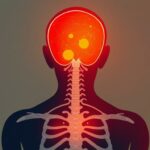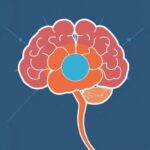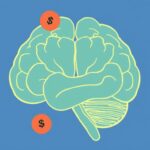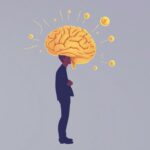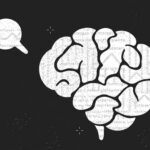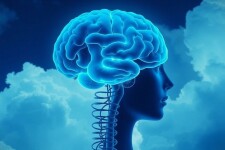Addiction is a complex and often misunderstood phenomenon that affects millions of people worldwide. When we hear the word «addiction,» many of us immediately picture substance abuse, like alcohol or drugs. However, addiction goes far beyond that. It can encompass behaviors such as gambling, gaming, or even compulsive shopping. At its core, addiction is about the way our brain and mind interact with substances or activities that produce pleasure, relief, or escape. The psychology of addiction helps us unravel how these patterns develop, why they stick around, and what triggers both relapse and recovery. In this article, we will dive deep into the psychological factors behind addiction, exploring the roles of the brain’s reward system, emotional regulation, environmental influences, and more.
What is Addiction? More Than Just a Habit
Addiction is often described as a chronic, relapsing disorder characterized by compulsive engagement in rewarding stimuli despite adverse consequences. But what does that mean in everyday terms? Simply put, addiction involves a loss of control over a behavior or substance use. While many people might occasionally use alcohol or gamble, someone with an addiction continues these activities despite knowing they harm their health, relationships, or daily function.
Addiction is not just a bad habit; it is a deep-rooted psychological and neurobiological condition. It rewires the brain’s chemistry and can change how a person thinks, feels, and reacts to stress. This is why addiction is often described as a «brain disease,» although this term alone can feel limiting. People can and do recover, often changing their entire mindset and lifestyle.
The Role of the Brain’s Reward System
At the heart of addiction lies the brain’s reward system, a network of neurons responsible for reinforcing behaviors necessary for survival, like eating and socializing. When we engage in pleasurable activities, our brain releases a chemical called dopamine. This neurotransmitter creates a feeling of pleasure or “reward,” encouraging us to repeat the behavior.
Drugs, alcohol, and many addictive behaviors hijack this reward system. They flood the brain with dopamine, creating an intense sensation of pleasure far beyond normal experiences. Over time, the brain adapts by producing less dopamine naturally or reducing the number of dopamine receptors. This leads to tolerance, where a person needs more of the substance or behavior to achieve the same high. It also causes withdrawal symptoms when the addictive agent is absent, reinforcing the cycle of use.
How Psychological Triggers Aid Addiction
Aside from the biological aspects, psychological triggers play a substantial role in addiction. Stress, trauma, anxiety, and depression are common underlying factors that drive individuals toward addictive behaviors. For many, substances or activities become coping mechanisms to numb emotional pain or escape from reality.
For example, someone who experiences chronic stress may find temporary relief in drinking alcohol or gambling, which provides a momentary distraction and dopamine surge. Unfortunately, reliance on these coping strategies can worsen mental health over time, creating a vicious cycle.
Memory and learning systems in the brain also contribute to addiction through conditioned cues. Certain places, people, or emotions become linked to the addictive behavior, making cravings more intense when faced with those reminders.
Environmental and Social Influences on Addiction
While addiction involves biological and psychological components, the environment and social context cannot be ignored. Family dynamics, peer pressure, socioeconomic status, and exposure to substances during childhood all impact addiction risk.
Children who grow up in homes where addiction is prevalent are more vulnerable due to both genetic and environmental factors. They may learn maladaptive ways to handle stress or dysfunction, increasing the likelihood of developing addictive behaviors later in life.
Peer groups can encourage or discourage addiction. Adolescence is a critical period where social acceptance often drives behaviors. If friends engage in drug use or other risky activities, an individual is more likely to follow suit.
Moreover, addiction rates often correlate with social determinants of health. Poverty, lack of access to education, and unstable living conditions create stressors that push people toward addiction. Communities with fewer resources for prevention and treatment struggle to break this cycle.
Common Types of Addiction and Their Psychological Patterns
Addiction is not limited to substances like drugs and alcohol. Behavioral addictions share many psychological traits with substance addiction but focus on compulsive engagement in activities. Here are some common types and how psychology plays into each:
- Alcohol Addiction: Often begins as social drinking but can escalate into dependence. Guilt, shame, and denial frequently complicate recovery.
- Drug Addiction: Includes opioids, stimulants, and sedatives. Psychological dependence often involves intense cravings and fear of withdrawal.
- Gambling Addiction: Rooted in the thrill of risk and reward, with cognitive distortions like the illusion of control fueling continued play.
- Internet and Gaming Addiction: Psychological escape and social interaction through virtual worlds can lead to neglect of real-life responsibilities.
- Food Addiction: Emotional eating triggered by stress or trauma, with parallels to substance dependence in brain response.
The Cycle of Addiction: How It Develops and Maintains Itself
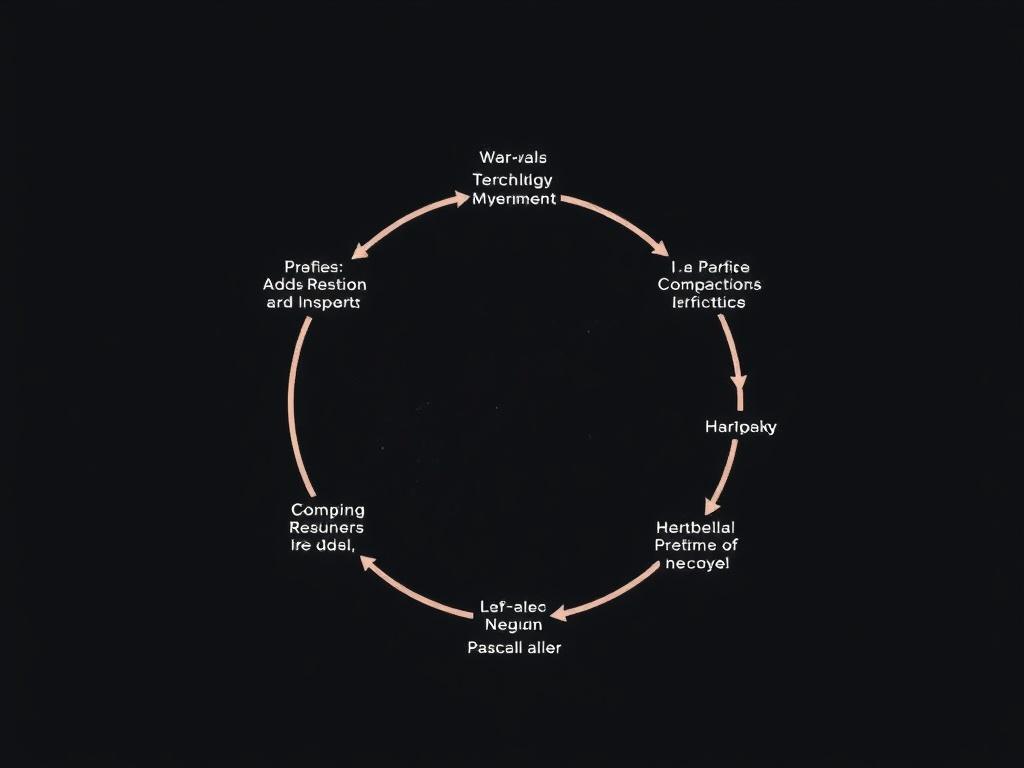
Understanding the cycle of addiction helps us see why it is so hard to break free from. The cycle typically follows these stages:
| Stage | Description | Psychological Impact |
|---|---|---|
| Experimentation | Trying a substance or behavior out of curiosity or social pressure. | Excitement and novelty. No noticeable harm yet, but brain reward activation begins. |
| Regular Use | Frequent engagement to achieve pleasure or relieve stress. | Formation of habits, emotional reliance starts, tolerance builds. |
| Risky Use | Use begins to cause problems personally, socially, or health-wise. | Denial, justification, increased psychological dependence. |
| Addiction | Compulsive use despite negative consequences. | Loss of control, cravings, withdrawal symptoms, and changes in brain function. |
| Relapse | Return to use after attempts to stop. | Feelings of failure, shame, but also motivation to seek help. |
This cycle can repeat many times before recovery is achieved, highlighting the chronic nature of addiction.
Treatment Approaches Grounded in Psychology
Because addiction affects the mind and brain in intricate ways, successful treatment must address psychological, emotional, and behavioral components. Here are some common evidence-based approaches used in therapy:
- Cognitive Behavioral Therapy (CBT): Helps individuals recognize and change harmful thought patterns and behaviors related to addiction.
- Motivational Interviewing: A supportive counseling method that enhances motivation to change and resolve ambivalence toward quitting.
- Contingency Management: Uses positive reinforcement to encourage abstinence and healthy behaviors.
- Mindfulness and Stress Reduction: Techniques that increase awareness of cravings and emotional regulation.
- Group Therapy and Support Groups: Provide social support and reduce feelings of isolation common among those struggling with addiction.
Psychological treatment often combines with medical interventions, such as medication-assisted therapies, to improve outcomes.
The Importance of Addressing Underlying Mental Health Issues
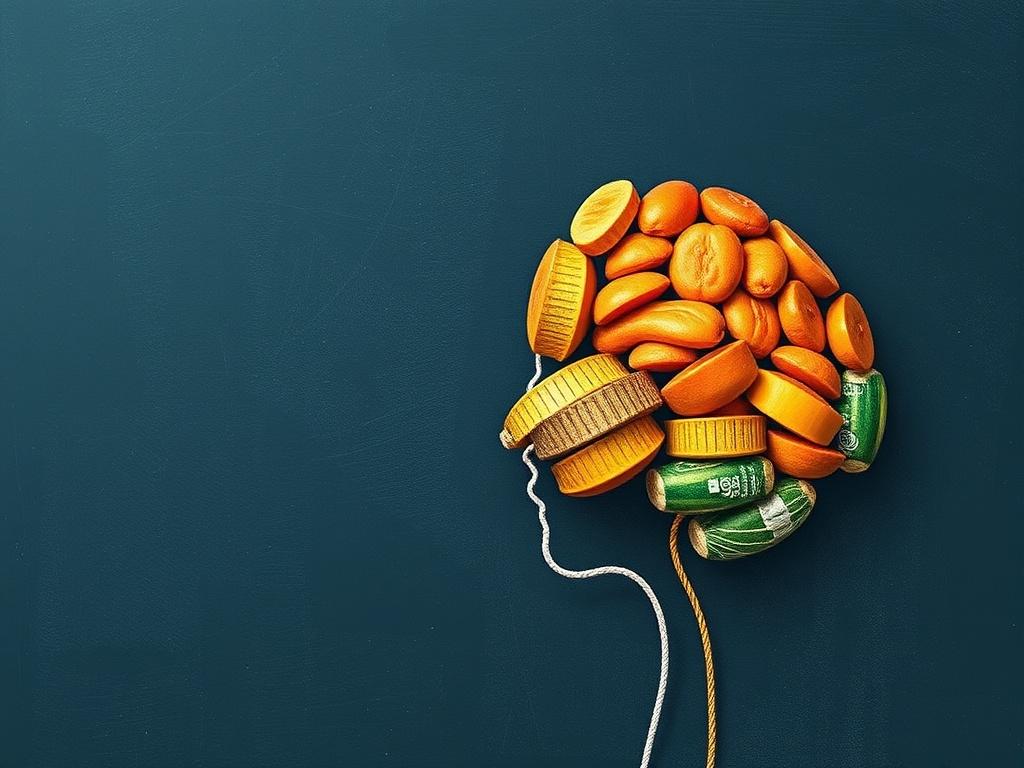
Many people struggling with addiction also experience co-occurring mental health disorders like anxiety, depression, or post-traumatic stress disorder (PTSD). The relationship between mental illness and addiction is bidirectional: one can worsen the other. Failing to treat underlying psychological conditions can make addiction treatment less effective and relapse more likely.
Integrated treatment that addresses both addiction and mental health simultaneously is considered best practice. This approach acknowledges that the psychology of addiction is multifaceted, requiring coordinated care.
How Family and Community Support Play a Role
Addiction does not happen in isolation. Family relationships and community environment play critical roles in both the development and recovery processes. Supportive families can encourage treatment, provide emotional sustenance, and help rebuild healthy coping mechanisms.
Communities that offer education, early intervention programs, and accessible treatment resources are better positioned to combat addiction on a larger scale. Reducing stigma around addiction through public awareness campaigns also empowers individuals to seek help without fear of judgment.
Technological Advances and Future Directions in Addiction Psychology
Research continues to delve deeper into how addiction works within the brain and mind. New technologies like neuroimaging help scientists observe brain changes linked to addiction and recovery in real time. This knowledge is paving the way for personalized treatment plans based on individual psychological and neurological profiles.
Digital therapies, including smartphone apps and virtual reality, are emerging as valuable tools for delivering psychological support, managing cravings, and providing motivation outside traditional therapy settings.
Artificial intelligence and machine learning are also being explored to predict relapse risks and tailor interventions dynamically. These innovations hold promise to revolutionize how we understand and treat addiction psychologically.
Practical Tips for Supporting Recovery
Whether you are personally managing addiction or supporting someone who is, understanding the psychology involved can help in practical ways. Here are some tips grounded in psychological principles:
- Recognize triggers and develop coping strategies to manage cravings.
- Practice self-compassion to avoid feelings of shame or failure.
- Create a structured daily routine to reduce opportunities for relapse.
- Engage in activities that promote natural dopamine release like exercise, hobbies, and social interaction.
- Seek professional psychological support and participate in therapy or support groups.
These strategies help repair the damaged reward system and rebuild healthier thinking patterns, essential for long-term recovery.
Summary of Key Psychological Factors in Addiction
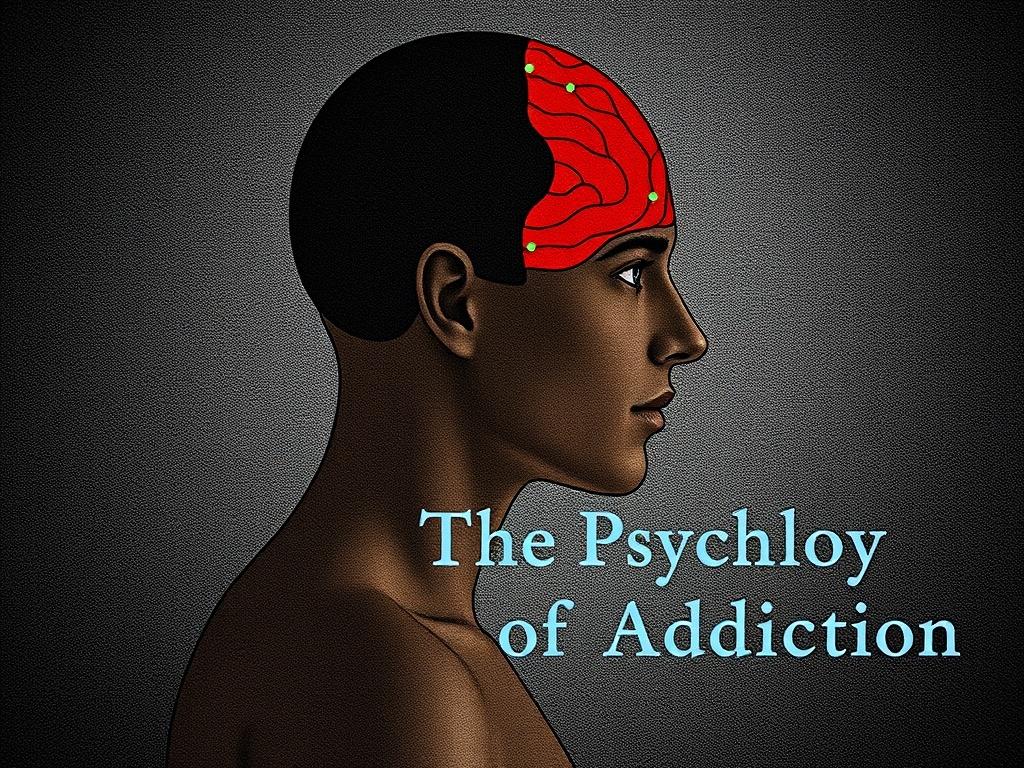
| Psychological Factor | Description | Impact on Addiction |
|---|---|---|
| Reward System Dysfunction | Altered dopamine pathways leading to heightened craving and tolerance. | Drives compulsive substance-seeking behaviors. |
| Emotional Regulation | Difficulty managing negative emotions such as stress and anxiety. | Prompts use of addictive substances/behaviors as coping mechanisms. |
| Conditioned Cues | Environmental triggers associated with past use. | Induce cravings and potential relapse. |
| Mental Health Disorders | Co-occurring anxiety, depression, PTSD. | Complicates addiction treatment and recovery. |
| Social Influence | Family, peer, and community pressures. | Affects initiation and maintenance of addictive behaviors. |
Conclusion
Understanding the psychology of addiction reveals just how deeply intertwined our brain, emotions, environment, and behaviors are in the development and maintenance of this condition. Addiction is far more than a lack of willpower or a mere habit; it is a complex disorder involving changes in brain chemistry, psychological coping strategies, and social factors. By appreciating these layers, we open the door to more compassionate, effective treatments that address not only the addiction itself but the whole person behind it. Recovery is possible, and with the right psychological tools, support systems, and innovative approaches, individuals can reclaim their lives from the grip of addiction. The journey is challenging but not impossible—illuminated by ongoing research and a deeper understanding of the human mind.


